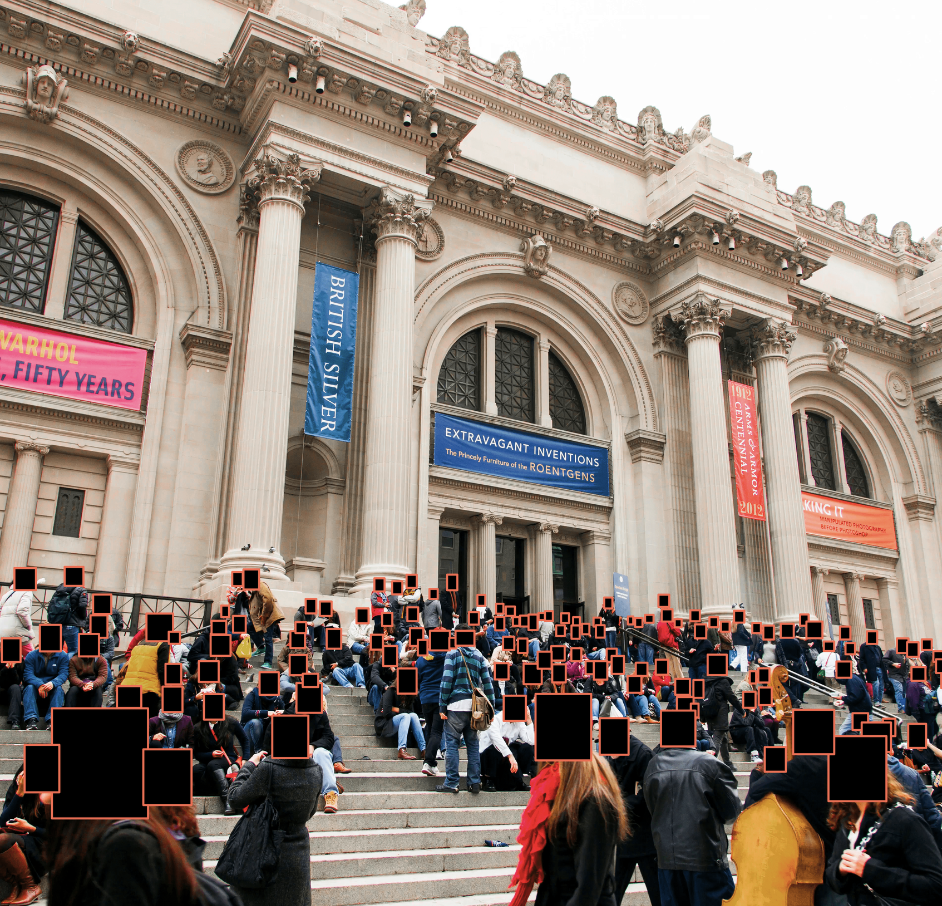Where does the balance lie between surveillance and security in public safety?
No. 80: Bringing you the news that matters in video privacy and security
While surveillance and data collection are important tools in conducting public safety, the trade-offs can sometimes be a challenge. This is especially the case when sensitive biometric public data, and advanced technology systems are used in the process. As governments and law enforcement agencies turn to sophisticated tools like facial recognition and biometric verification to bolster security, it is imperative to navigate these advancements properly.
A recent study by The Alan Turing Institute reveals that over half of respondents believed the benefits of biometric technology in policing outweighed the privacy concerns - however, there is a clear demand for stringent regulation. This cautious optimism reflects a broader trend: the public's recognition of the potential of technology as public safety continues to be an ongoing priority.
Meanwhile, California Governor, Gavin Newsom, has proposed a plan to install approximately 480 surveillance cameras to fight crime in Oakland. This will provide law enforcement with enhanced capabilities to identify vehicles linked to criminal activity. Even though it is met with support for its potential to reduce crime, critics argue that such measures can disproportionately affect marginalized communities and divert resources from alternative safety strategies.
How does law enforcement leverage technological advancements and increased data collection for public safety without eroding privacy or deprioritising transparency? A balanced approach that involves public consultation and the development of regulatory frameworks that safeguard against abuses is imperative. By integrating privacy protections and ethical considerations into technological development, security and privacy do not have to be mutually exclusive.
As always, please send any feedback or topics of interest you would like to be covered.
Seena, Editor
News
India addresses cybersecurity flaw that exposed sensitive data of citizens
After years of vulnerabilities, the Indian government has rectified a significant cybersecurity flaw in its cloud service, which exposed sensitive citizen data - this included identification numbers, COVID-19 vaccination records, and passport details. It was the result of a misconfiguration that made private documents publicly searchable online, posing risks of identity theft and discrimination.
Tech Crunch: Indian government’s cloud spilled citizens’ personal data online for years
Oakland to enhance crime-fighting efforts with 480 new surveillance cameras
California Governor, Gavin Newsom, has announced plans to install approximately 480 surveillance cameras across Oakland and its freeways to combat rising crime. This initiative aims to support law enforcement and public safety, with surveillance systems equipped with advanced capabilities to identify vehicles linked to criminal activities.
LA Times: To catch a thief: Oakland installs hundreds of surveillance cameras to try to thwart crime
The Guardian: California deploys hundreds of freeway surveillance cameras in Oakland to fight crime
Temu revises cash giveaway terms, amid data privacy concerns
E-retailer Temu has amended the conditions of a cash giveaway promotion after participants raised data privacy concerns. Initially requiring extensive personal data, Temu's original terms faced scrutiny for potentially allowing indefinite, worldwide use of participants' personal information for promotional purposes.
BBC: Temu U-turns on terms of cash 'giveaway' offer
The Independent: Temu changes T&Cs of free cash giveaway after data protection concerns
Study finds the UK public supports regulated police biometric collection
New research from the Alan Turing Institute has found that British citizens favor law enforcement's use of biometric identification and verification systems when regulated. 85% support biometrics to verify identities at the UK border and 60% support live facial recognition to catch suspects in crowded areas.
Pimloc Company announcements
Pimloc's Secure Redact integrates with Milestone Systems
Pimloc has integrated Secure Redact with Milestone Systems XProtect VMS to enhance video surveillance and redaction capabilities. This collaboration combines our unrivalled multimedia redaction technology with industry-leading video management solutions to ensure easy accessibility and data management compliance across sectors.
Security Info Watch: Pimloc integrates Secure Redact into Milestone Systems XProtect VMS
Secure Redact: Pimloc integrates Secure Redact into Milestone Systems XProtect VMS
AI Snippet of the Week
The US and UK sign landmark bilateral agreement on AI safety testing
The US and UK governments have signed an agreement to collaborate on artificial intelligence safety. This partnership will enhance the sharing of expertise, information, and research between the two nations, and set a global precedent for AI regulation and safety measures.
The Financial Times: US and UK sign landmark agreement on testing safety of AI
Policy Updates
US Congress introduce bipartisan American Privacy Rights Act
Federal lawmakers have introduced the American Privacy Rights Act, a landmark bipartisan proposal which will give consumers comprehensive control over how their personal data is used by Tech Giants. This initiative would establish national online privacy standards and allow users to opt out of targeted advertising.
Wired: A Breakthrough Online Privacy Proposal Hits Congress
The Washington Post: Lawmakers unveil sprawling plan to expand online privacy protections
To subscribe to our fortnightly newsletter, please click here
Thanks for reading, if you have any suggestions for topics or content that you want to see covered in future please drop a note to: info@secureredact.co.uk







